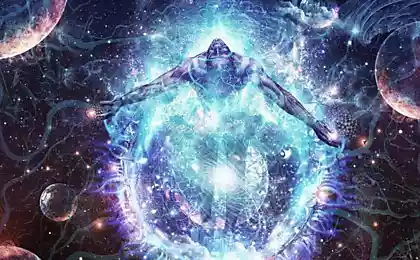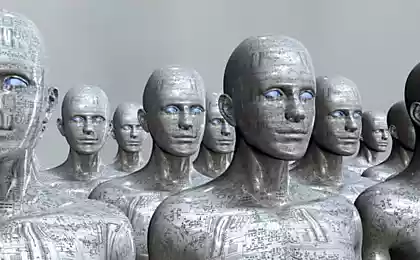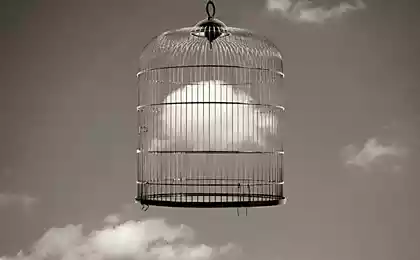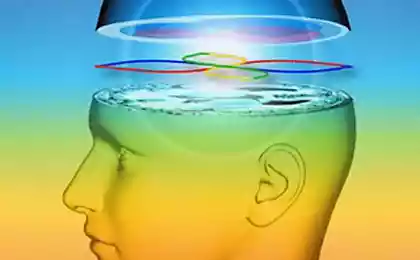1068
Pitfalls of consciousness
Ability of the human brain is still higher than in many of today's computers. In this simple calculator to cope with the calculations much better and faster than any of us.
And all because we tend to fall into the trap of his own consciousness, which now and then force us to make questionable decisions and make false conclusions.
You are not to blame for their irrational. And this explanation.
Things get worse
Noticed that every year around getting worse and worse? So we are led to think the effect of negativity.
The fact is that we tend to pay attention to the bad news and good to ignore. Scientists believe that we subconsciously perceive as bad as more important.
That is why we think that the situation in the world is exacerbated by the day. While, for example, a writer and psychologist Steven Pinker in his book proves that crime, violence and war is becoming less and less.
The safety car
Almost everyone knows that the aircraft - the safest vehicles in the world, unlike the car. Statistically likely to die in a car accident ten times higher than in the plane. But our brain refuses to accept this relationship, and we continue to confidently get behind the wheel, but to tremble like a leaf on board. The phenomenon of probability neglect makes us afraid to die at the hands of terrorists and not think about much more real danger - fall down stairs or accidentally poisoned, for example.
I am always right
We love to agree with people who agree with us. That is why we choose people with similar views, judgments and preferences.
We are unpleasant individuals, groups of people or sites that make us doubt their own right. Psychologist Skinner called this phenomenon "cognitive dissonance».
This leads to selectivity and bias confirmation - we accept only the information that confirms our judgments. At the same time we ignore or reject everything that conflicts with our true and threatens to destroy the familiar image of the world for us. Internet, by the way, only reinforces this trend.
Heads or tails
We often believe that the events of the past can somehow influence our present. This phenomenon is called the error of the player. A simple example - coin toss. If five consecutive falls tails, our brains are confident that the next time necessarily fall eagle. In fact, the odds are still 50/50.
Roughly the same trap works "positive expectations" inherent gamers. They think that after a few losses luck just has to turn around to face them, and already the next game will bring them huge jackpot.
It was worth it
Everyone can think of a situation where made unreasonably expensive or unnecessary purchases. And instead of carrying it back, you have persuaded themselves that "it was worth it».
This is how the post-shopingovogo rationalization - the brain is programmed for comfort when you make some obvious stupidity. In the end, you start to think that the risks were justified, and you would have done so for the second time.
Someone else, so bad
Our innate need - to feel part of the team.
All the matter oksitotsinome - the so-called "love molecule". On the one hand, this hormone helps us to create close ties with each other, on the other - makes repel all who remained outside of our "circle". He makes us suspicious, frightening and even arrogance towards strangers.
In the end, we overestimate our own group of people and underestimate those of whom we are, in fact, have no idea. This - the effect of intra-bias.
Why are all around pregnant?
It often happens that we suddenly start all over for us to notice something new. We believe that this "something" from a certain moment was to haunt us, while in reality we just do not pay attention to it. This is the effect of sample surveys.
Example: You buy a new car, and from that moment begin to see the same cars around and everywhere. Or the woman who found out about the pregnancy, suddenly begins to notice around a large number of pregnant women. This can be anything: any song or rarely used expression.
Gregarious
We love to move along with the crowd, even though we may not be aware of. When people around us are choosing a pet - whether it's a sports team or a singer, then our personality is disabled. We fall into a state of a kind of "groupthink" that creates the effect of craze.
For example, the thing that your colleagues will consider "cool", is likely to seem "cool" for you. Well, in sports or - if most of your surroundings is a fan of any team, it is very difficult not to succumb to the universal passion.
Silence gives consent
Tendency to assume that other people think the same way as we do, is caused by the effect of the transfer. For example, often members of radical organizations believe that the whole world shares their position. Though so can not at all be.
Since this effect is related similar - false consensus effect - unjustified confidence that surround the default agree with us.
Discounted - so cheap
We pay attention to the difference between the numbers, but not on their value. This is called "anchor effect" or "trap comparison". This focus actively favor of the seller.
A classic example - the goods on sale. We see two prices on the label and appreciate the differences between them, not the price. If the discount is significant, it gives us the impression, even if the goods are actually too expensive even with a discount.
This reception and enjoy the restaurants - they include in the menu prohibitively expensive meals to the price of other seemed quite reasonable. For the same reason, we often choose something in between - not too expensive, but not the cheap.
Think about it tomorrow
In 1998 he conducted research on the effect of the moment. 74% of buyers choosing food for a week, chose healthy fruits. And when they were asked to make a choice for the day, then 70% of the participants in the experiment were drawn to chocolate.
Often we behave frivolously today without thinking about tomorrow. The fact that we subconsciously we throw the responsibility on someone who we will be tomorrow. And we find it hard to understand that it will once again we are.
Author George Dvorsky
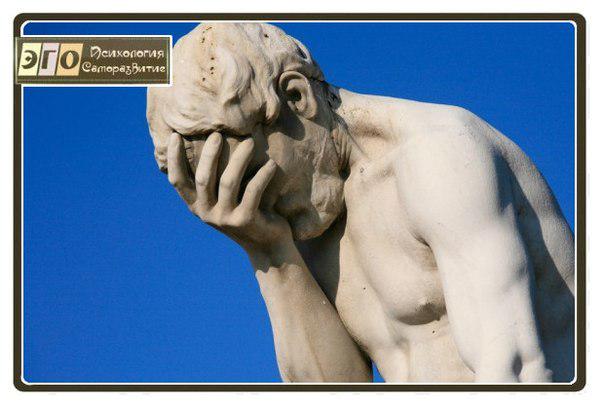
And all because we tend to fall into the trap of his own consciousness, which now and then force us to make questionable decisions and make false conclusions.
You are not to blame for their irrational. And this explanation.
Things get worse
Noticed that every year around getting worse and worse? So we are led to think the effect of negativity.
The fact is that we tend to pay attention to the bad news and good to ignore. Scientists believe that we subconsciously perceive as bad as more important.
That is why we think that the situation in the world is exacerbated by the day. While, for example, a writer and psychologist Steven Pinker in his book proves that crime, violence and war is becoming less and less.
The safety car
Almost everyone knows that the aircraft - the safest vehicles in the world, unlike the car. Statistically likely to die in a car accident ten times higher than in the plane. But our brain refuses to accept this relationship, and we continue to confidently get behind the wheel, but to tremble like a leaf on board. The phenomenon of probability neglect makes us afraid to die at the hands of terrorists and not think about much more real danger - fall down stairs or accidentally poisoned, for example.
I am always right
We love to agree with people who agree with us. That is why we choose people with similar views, judgments and preferences.
We are unpleasant individuals, groups of people or sites that make us doubt their own right. Psychologist Skinner called this phenomenon "cognitive dissonance».
This leads to selectivity and bias confirmation - we accept only the information that confirms our judgments. At the same time we ignore or reject everything that conflicts with our true and threatens to destroy the familiar image of the world for us. Internet, by the way, only reinforces this trend.
Heads or tails
We often believe that the events of the past can somehow influence our present. This phenomenon is called the error of the player. A simple example - coin toss. If five consecutive falls tails, our brains are confident that the next time necessarily fall eagle. In fact, the odds are still 50/50.
Roughly the same trap works "positive expectations" inherent gamers. They think that after a few losses luck just has to turn around to face them, and already the next game will bring them huge jackpot.
It was worth it
Everyone can think of a situation where made unreasonably expensive or unnecessary purchases. And instead of carrying it back, you have persuaded themselves that "it was worth it».
This is how the post-shopingovogo rationalization - the brain is programmed for comfort when you make some obvious stupidity. In the end, you start to think that the risks were justified, and you would have done so for the second time.
Someone else, so bad
Our innate need - to feel part of the team.
All the matter oksitotsinome - the so-called "love molecule". On the one hand, this hormone helps us to create close ties with each other, on the other - makes repel all who remained outside of our "circle". He makes us suspicious, frightening and even arrogance towards strangers.
In the end, we overestimate our own group of people and underestimate those of whom we are, in fact, have no idea. This - the effect of intra-bias.
Why are all around pregnant?
It often happens that we suddenly start all over for us to notice something new. We believe that this "something" from a certain moment was to haunt us, while in reality we just do not pay attention to it. This is the effect of sample surveys.
Example: You buy a new car, and from that moment begin to see the same cars around and everywhere. Or the woman who found out about the pregnancy, suddenly begins to notice around a large number of pregnant women. This can be anything: any song or rarely used expression.
Gregarious
We love to move along with the crowd, even though we may not be aware of. When people around us are choosing a pet - whether it's a sports team or a singer, then our personality is disabled. We fall into a state of a kind of "groupthink" that creates the effect of craze.
For example, the thing that your colleagues will consider "cool", is likely to seem "cool" for you. Well, in sports or - if most of your surroundings is a fan of any team, it is very difficult not to succumb to the universal passion.
Silence gives consent
Tendency to assume that other people think the same way as we do, is caused by the effect of the transfer. For example, often members of radical organizations believe that the whole world shares their position. Though so can not at all be.
Since this effect is related similar - false consensus effect - unjustified confidence that surround the default agree with us.
Discounted - so cheap
We pay attention to the difference between the numbers, but not on their value. This is called "anchor effect" or "trap comparison". This focus actively favor of the seller.
A classic example - the goods on sale. We see two prices on the label and appreciate the differences between them, not the price. If the discount is significant, it gives us the impression, even if the goods are actually too expensive even with a discount.
This reception and enjoy the restaurants - they include in the menu prohibitively expensive meals to the price of other seemed quite reasonable. For the same reason, we often choose something in between - not too expensive, but not the cheap.
Think about it tomorrow
In 1998 he conducted research on the effect of the moment. 74% of buyers choosing food for a week, chose healthy fruits. And when they were asked to make a choice for the day, then 70% of the participants in the experiment were drawn to chocolate.
Often we behave frivolously today without thinking about tomorrow. The fact that we subconsciously we throw the responsibility on someone who we will be tomorrow. And we find it hard to understand that it will once again we are.
Author George Dvorsky

